Has The Guardian been duped?
Yesterday, my partner (who's a non native Spanish speaker) surprised me with an out-of-context text message:
"Estamos entre culo y calzón"
Literally, "we are between the arse and the pants".
To say I was confused was an understatement. Had that been a result of using auto complete with a Spanish keyboard? Was it just a combination of random words that sound funny and hilarious to a non native speaker? I asked. I was told that it appeared in The Guardian, and was given a link to an article-cum-poll about untranslatable idioms.
And there it was, in eight position:

The problem is that I had never, ever, heard this sentence, and I am a native Spanish speaker with a reasonable cultural awareness. I asked more Spanish friends if they had heard about this sentence, and none of them knew what the hell was I talking about.
I wondered if maybe that's because it is an American Spanish idiom. But I unfortunately didn't have any American Spanish friend at hand, so I took it to the internet.
"Surely", I thought, "if this is a sentence that exists and has not been created by a sheer autocomplete accident, I would find references to it".
Well...
Duck Duck Go! returned the amazing amount of... three results
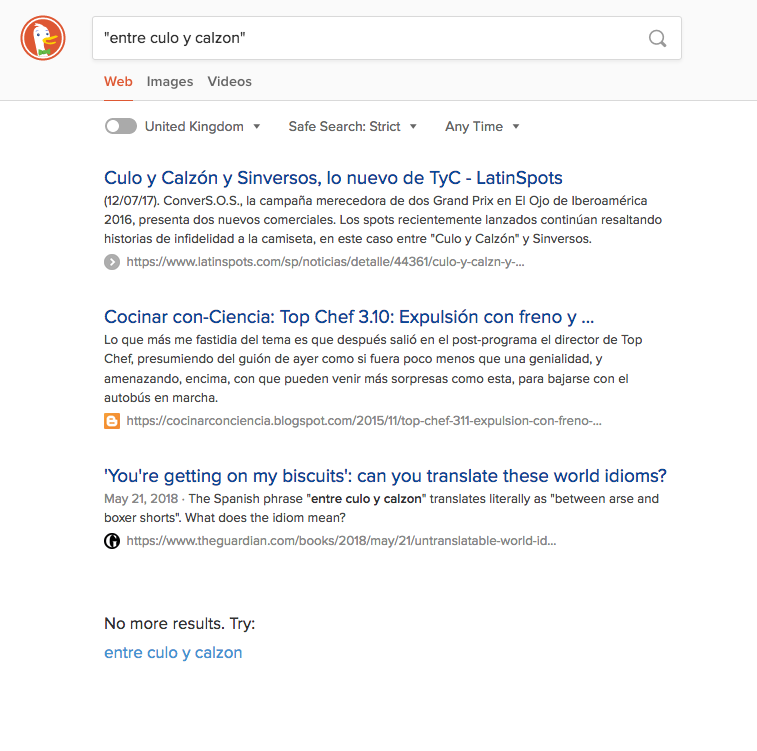
Or in other words:
- a site describing some latin advertising campaign
- a blog post using the sentence in a literal way (someone sticking something in their underwear)
- the same Guardian article which started this confusion.
Although DDG is generally a fantastic search engine, it sometimes is a bit lacking with non-English languages. So I reluctantly asked Google:
Which gave me the incredible amount of eight results.
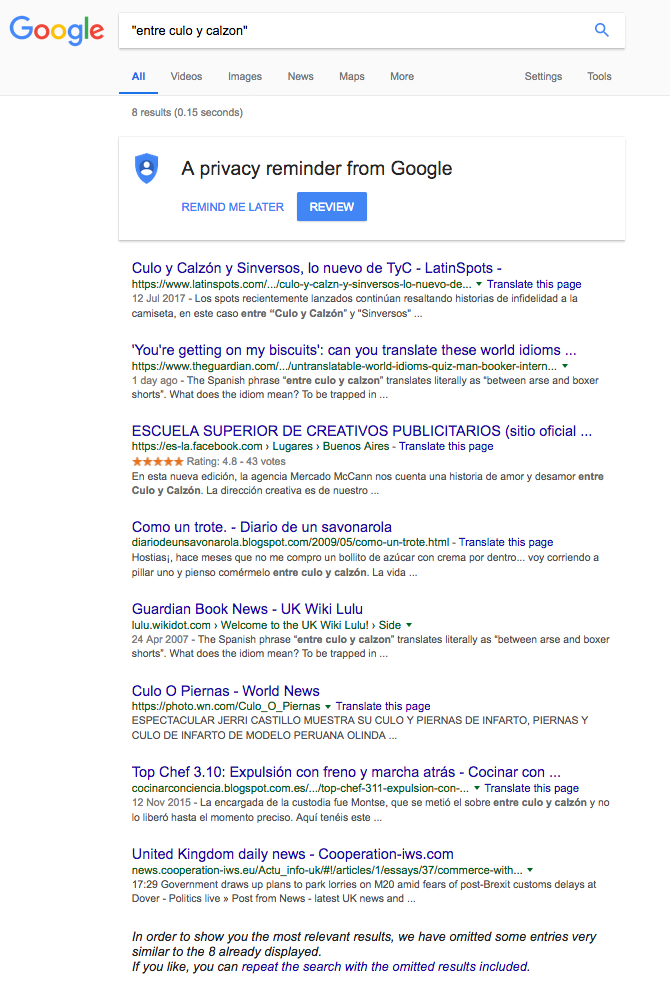
And here:
- the same site describing a creative latin advertising campaign
- the article in The Guardian
- a site talking about site number 1
- a blog post which uses the sentence in a metaphorical way which absolutely eludes me and which does not seem to reflect the accepted meaning from the poll
- a link to the article in The Guardian
- spam
- same blog post using the sentence literally
- another link to the article in The Guardian
The creative advertising campaign does not contain the literal sentence "entre culo y calzón", but "entre 'culo y calzón'" where 'entre' means 'between' "culo y calzón" and "sinversos". Between two campaigns. So the text doesn't even appear literally in this site either.
But I don't give up easily. I thought: let's search in Google books:
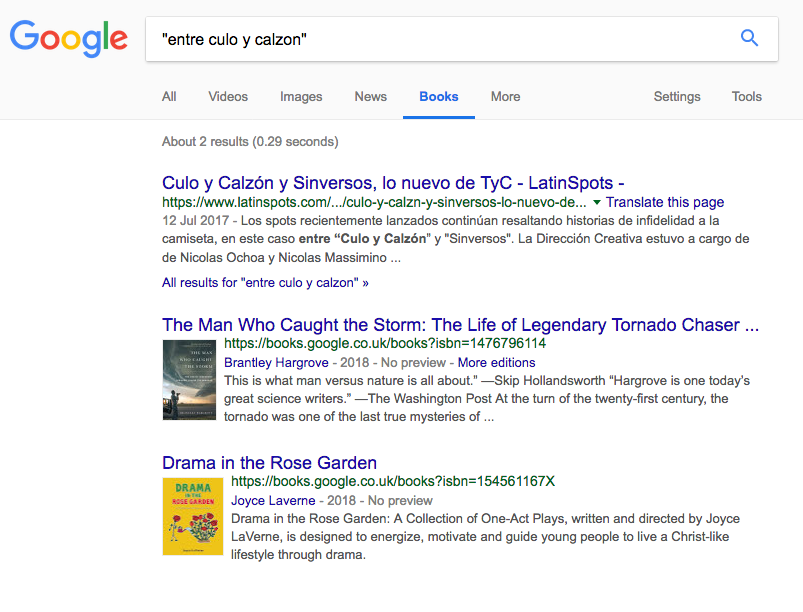
Google is about to declare defeat, but doesn't want to. It says it has "about two results", and shows the link to the advertising campaign first, because it must literally be the only place where the sentence is used and has some level of SEO value.
The other two results are links to books written in English and which I don't think are about idioms—they look more like false positives, specially considering the name of one of the publishers is "XULON", which could be very similar to "CULO" for a search engine when the situation reaches desperate mode (i.e. "I really want to show SOMETHING but I am having a really hard time so I'm going to become VERY liberal in my search").
For comparison, when you search for a Spanish idiom that is actually widely used, you get thousands or more of results.
Since we're into idioms that start with "entre", let's search for "Entre Pinto y Valdemoro" (="being undecided"):
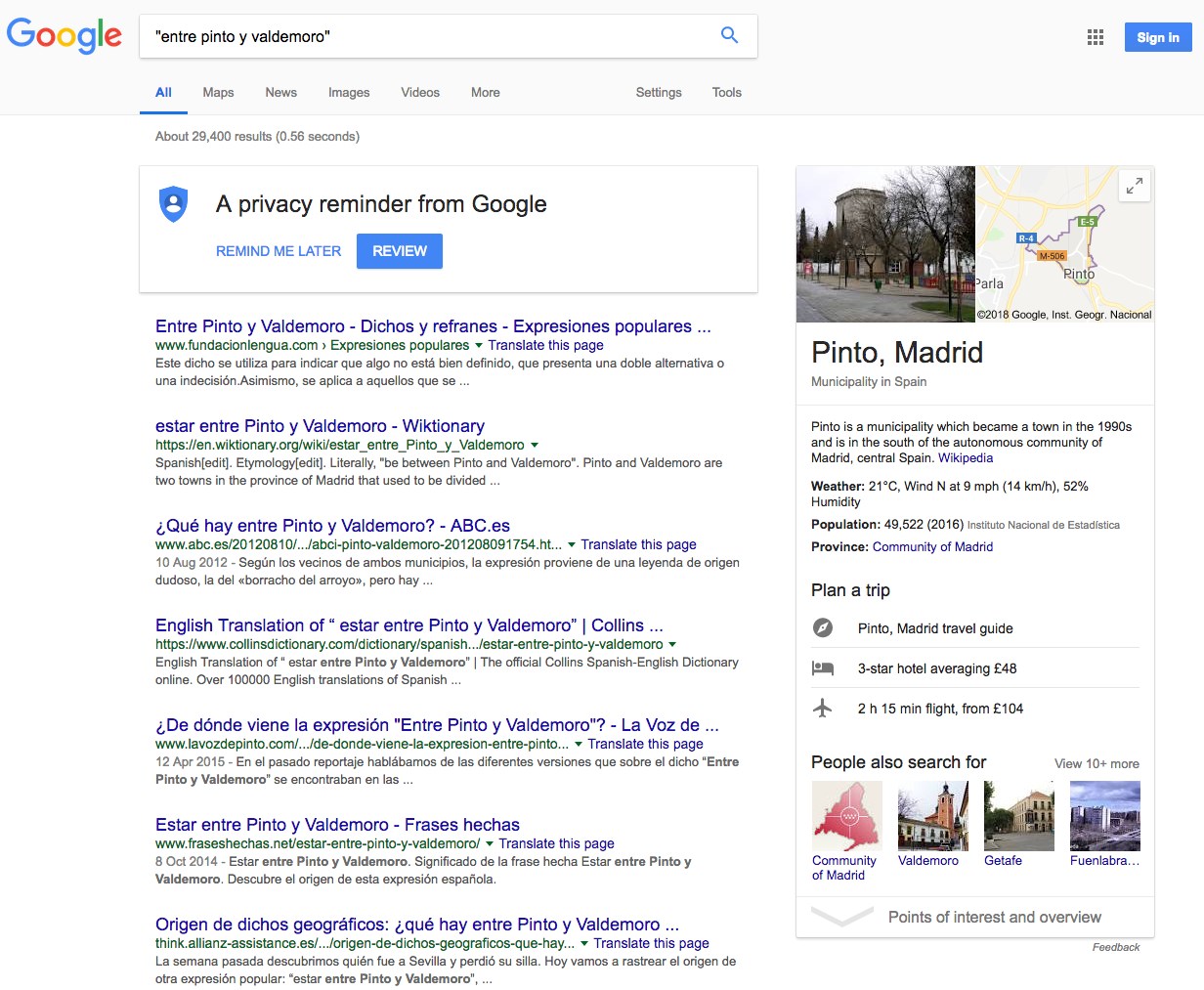
29,400 results.
What about "entre la espada y la pared"? (between the sword and the wall = the situation is really bad):
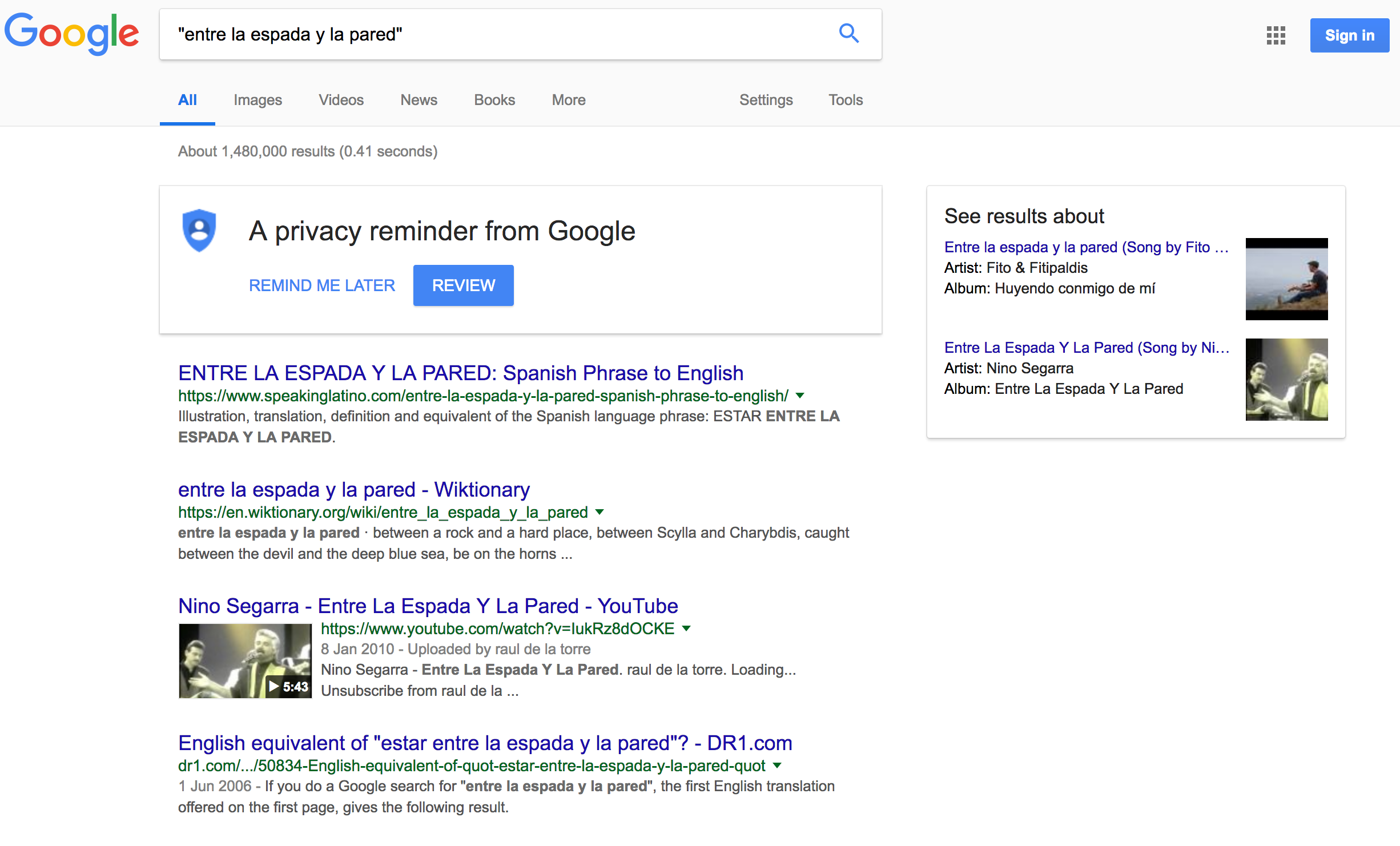
1,480,000. Almost a million and a half.
So in summary:
- I only found a result where the sentence is used metaphorically, as an idiom, and doesn't seem to mean the same the Guardian says it means
- plus one result with literal usage
Does it mean that because the sentence is used metaphorically once it is then "a valid idiom"? As in, does it make it relevant enough that a Spanish speaker should know about it?
I'd disagree. We all have our own "family idioms" and it doesn't mean that everyone else will understand what we mean, even if they are grammatically correct. For an idiom to become a "true idiom" it has to be understood by a bigger circle of speakers than your household.
In light of that, if we deem "entre culo y calzón" as a made up idiom, or not relevant enough, we should also be asking ourselves: has The Guardian been duped?
Did anyone double check the article before it was published?
Because it looks like someone heard about the creative advertising campaign, and thought the idiom was real. But it can't be—certainly not in light of the data you can find with a couple of internet searches.
This was a really shoddy job, Guardian, and I'm disappointed. I expected better from you.